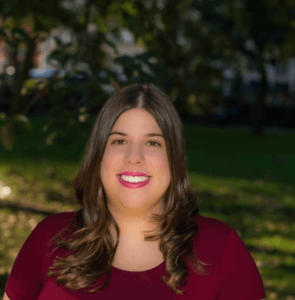We live in a world of technology filled with Facebook, Twitter, Snapchat, Pinterest, Instagram, YouTube, and all these other social media platforms. We can often be found on our phones, tablets, or computers posting pictures and updates or checking to see what everyone else has been up to. There are a lot of positives about using social media. For example, it is easier to keep in touch with people and know what is going on in their lives. It is also a great way for world news to travel. Unfortunately, this can come along with a negative impact on self-esteem. Social media can often tap into our insecurities. I often hear from people, both clients and friends, that they feel sad and depressed when looking through their social media news feeds. These platforms have created a way to compare yourself to others in a way that we never had before.
Most of the time, people are posting pictures and statuses of the fun things they are doing, about their romantic relationships, developments in their careers, etc. If you feel that something is lacking in your life, seeing other people’s accomplishments can be very difficult. If you are particularly struggling with something, seeing someone’s success in that area can be especially hard. As you are scrolling through your news feed and it is one post after the next of all these exciting things, it is easy to start feeling badly about yourself.
Evaluating our own posts can also create another point of stress. How many times have you posted something and worried, “What if no one likes it or comments?” A lot of time can be spent thinking about what to post and how. Questions we can often ask are: Will this look stupid? Will people make fun of me? and, Is this picture posting worthy? You can get into comparing and ask yourself, “Why did his/her post get so many more likes than mine?” People compare how many birthday greetings they got, how many friends they have, how many people post to their page or tag them in a post. A friend posts on another friend’s wall and you wonder “Why didn’t they tag me?” or “Why didn’t they post that on my wall?” So much time and energy is spent on concern regarding these things and can lead anxiety and depression.
The Negative Impact on Self-Esteem in Social Media
We seem to be using social media to determine our self-worth and that is extremely detrimental! It is not realistic to say no more social media, nor do I think that should even be the goal. The question now becomes what can we do?
Stop comparing
Remember that social media is not an accurate picture of someone’s life. As a general rule, you can’t compare your inside to someone else’s outside. You never really know what is going on in someone else’s mind. It is a very dangerous game when you start to such comparison. This especially applies to social media: what someone chooses to show on these sites is not reflective of a true reality. When you find yourself enviously looking at other people’s posts or becoming sad about your own life, remind yourself of this.
Change your mindset
Don’t look to social media to determine your self-worth. Stop worrying about what other people think. Remind yourself that your value is not decided in relation to someone else’s. How many friends or followers you have and how many likes and comments a post has does not define you nor reflect what people actually think of you. Don’t let yourself continue to fall into this trap of judging yourself based on your social media platforms.
Take a break
Stop checking into your social media accounts for a little. You could not check in at all or just look at your notifications, rather than surfing through all the other information and posts. You can do this at regular intervals as a preventive measure or in times when you are feeling especially down.
Be in the moment
Stop focusing on should you post this or you need to find something “cool enough” to post. Instead of worrying about what people will think of a post and how many likes you get, stay in the present and focus on whatever else is going on at the time. Practicing deep breathing and mindfulness exercises can be helpful with this.

Alyssa Mairanz, LMHC, DBTC
Alyssa Mairanz provides counseling and therapy services for life transitions, relationship issues, self esteem, depression, anxiety, and DBT and Psychodynamic therapy in a NYC group practice in the Flatiron District near Madison Square Park. She also serves the Village, Chelsea, Union Square, the Financial District and the surrounding areas.
Empower Your Mind Therapy’s mission is to helps our clients build the life they want and find more happiness and satisfaction.



